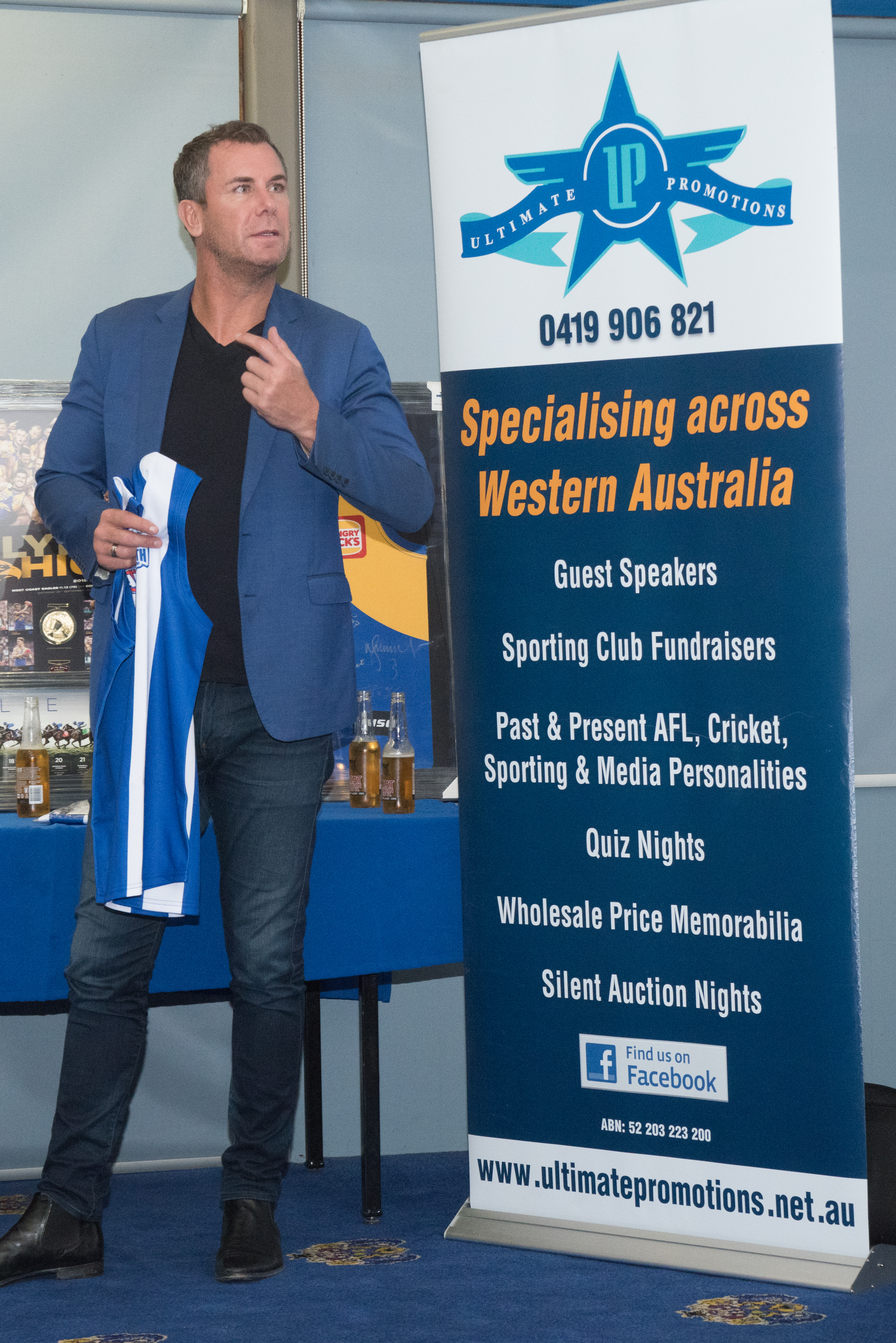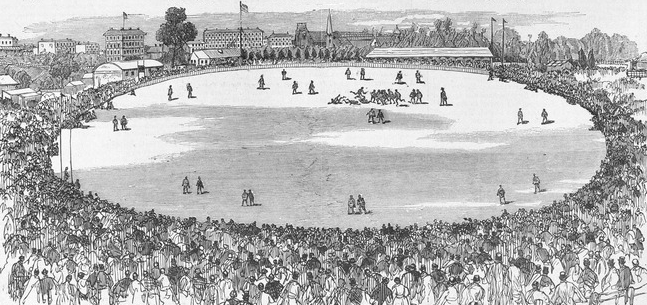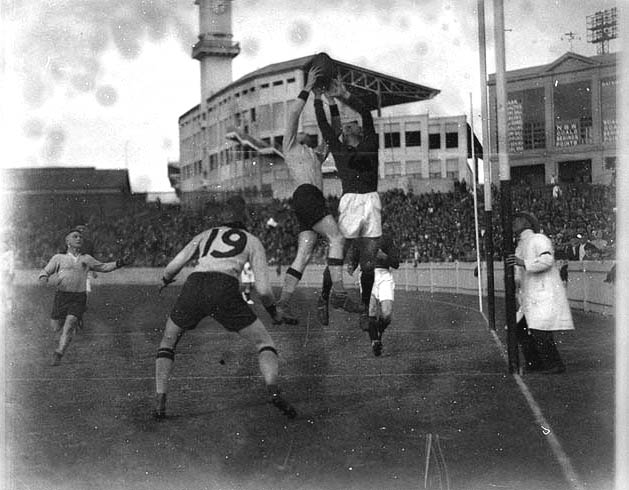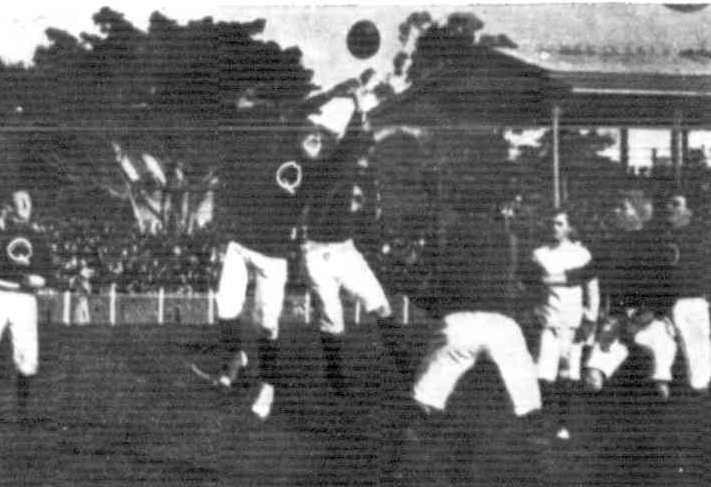|
Billy Brownless
Anthony William Brownless (born 28 January 1967) is a former Australian rules footballer and radio and television media personality who represented in the Australian Football League (AFL) during the 1980s and 1990s. Early life Brownless was born and raised in Jerilderie, a rural town in New South Wales. He first played football for his local team, the Jerilderie Football Club, when it was part of the Murray Football League. He boarded for three years in Kilmore, Victoria, at Assumption College, one of Australia's most renowned "football nurseries", a school which has a strong tradition of producing footballers who have gone on to play in the AFL. In 1984, his final year at the school, Brownless kicked 155 goals for the school team. Career VFL/AFL Geelong asked Brownless to come and train, but instead he chose to return home to Jerilderie to be with family and friends and play a season of senior football before going to Geelong. During the 1985 season, he kicked 148 goals for ... [...More Info...] [...Related Items...] OR: [Wikipedia] [Google] [Baidu] |
Jerilderie
Jerilderie is a small, rural town in the southern Riverina region of New South Wales, Australia. It is part of the Murrumbidgee Local Government Area. At th Jerilderie had a population of 922 people. It can be found along the Newell Highway south-west of Sydney and north of the Victorian state border. Jerilderie's postcode is 2716. This is also where Ned Kelly and his Gang robbed the 'Jerilderie Bank'. Overview Jerilderie is an irrigated farming centre. The area around Jerilderie produces a quarter of all tomatoes grown in Australia, as well as being a prime Merino stud region. Additionally, Jerilderie has a diverse number of crops such as rice, wheat, canola, mung and soybeans, onions, liquorice, grapes and a number of cattle farms. The town has two primary schools, ''Jerilderie Public School'' and ''Jerilderie Catholic School'', an 18-hole golf course, three pubs, and a hospital which was the first in regional Australia to operate with solar power. This hospital ha ... [...More Info...] [...Related Items...] OR: [Wikipedia] [Google] [Baidu] |
Tom Hawkins (footballer, Born 1988)
Thomas John Hawkins (born 21 July 1988) is an Australian rules footballer playing for the Geelong Football Club in the Australian Football League (AFL). At 198 cm (6 ft 6 in) tall and weighing , Hawkins has the ability to play as either a full-forward or centre half-forward. He grew up in New South Wales before moving to Victoria to attend Melbourne Grammar School, where his football abilities earned him a spot in the first XVIII in year ten. He played top-level football with the Sandringham Dragons in the TAC Cup and Vic Metro in the AFL Under-18 Championships. His accolades as a junior include national and state representation, the Larke Medal as the AFL Under-18 Championships most valuable player, and All-Australian selection. As the eldest son of former Geelong champion Jack Hawkins, Hawkins was drafted by Geelong under the father–son draft rule with the forty-first selection in the 2006 national draft. He made his AFL debut in 2007, which saw former coach, Denis P ... [...More Info...] [...Related Items...] OR: [Wikipedia] [Google] [Baidu] |
John Longmire
John Longmire (born 31 December 1970) is the current coach of the Sydney Swans. As a player, he represented the North Melbourne Football Club in the Australian Football League (AFL) from 1988 to 1999. Early years Longmire was born in Corowa, New South Wales. He took up Australian rules as a child and first came into notice when he won the 1984 Thirds goal kicking award in the Coreen & District Football League with Corowa-Rutherglen. In his first season of senior football career with Corowa-Rutherglen in New South Wales, he nearly won the Ovens & Murray Football League's leading goalkicker title in 1987 as a 16-year-old, kicking 82 goals. His ability and size quickly attracted the interest of the North Melbourne VFL club's talent scouts. Longmire's grandfather is former Fitzroy Football Club player Keith Williams. His uncle, Robert Longmire, is a former Collingwood Football Club player. Walter Longmire (John Longmire’s great grandfather) represented New South Wales v South ... [...More Info...] [...Related Items...] OR: [Wikipedia] [Google] [Baidu] |
Wayne Carey
Wayne Francis Carey (born 27 May 1971) is a former Australian rules footballer who played with the North Melbourne Football Club and Adelaide Football Club in the Australian Football League (AFL). A dual-premiership captain at North Melbourne ( 1996 and 1999), four-time North Melbourne best-and-fairest ( Syd Barker Medallist) and seven-time All-Australian, Carey is nicknamed "The King", or "Duck". In 2001, he was named as centre half-forward and captain of North Melbourne's Team of the Century, and in 2008 was named as Australian football's greatest ever player, as part of a list of the top 50 players of all time, published in the book ''The Australian Game of Football'', which was released by the League to celebrate 150 years of Australian rules football. In 2002, he left North Melbourne in disgrace after it was revealed he'd been having an extramarital affair with the wife of his then-teammate Anthony Stevens. He is also known for a string of legal problems, which inc ... [...More Info...] [...Related Items...] OR: [Wikipedia] [Google] [Baidu] |
Victoria Australian Rules Football Team
The Victoria Australian rules football team, known colloquially as the Big V, is the state representative side of Victoria, Australia, in the sport of Australian rules football. The Big V has a proud history, dominating the first 100 years of intercolonial-interstate football, and being the most successful state in State of Origin. After the change to State of Origin rules, the results with the other main Australian football states became more even. Victoria has a long and intense rivalry with South Australia and Western Australia. The Victorian and South Australian rivalry was characterised by the catchcry in South Australia called "Kick a Vic", and fans would bring signs of the cry to the games. Some of the games between Victoria, South Australia and Western Australia in the 1980s and 1990s have been regarded as some of the greatest games in the history of Australian football. Victoria's last appearance against another state at open level was in 1999 when it defeated South A ... [...More Info...] [...Related Items...] OR: [Wikipedia] [Google] [Baidu] |
Western Australia Australian Rules Football Team
The Western Australia Australian rules football team is the state representative side of Western Australia in the sport of Australian rules football. Western Australia has a proud history in interstate football, having a successful historical record and winning three Australian Championships and a State of Origin Carnival Championship, in the State of Origin era. Western Australia has a long and intense rivalry with Victoria. The 1986 game between Western Australia and Victoria is "regarded by many people as one of the greatest games – not just in State of Origin – but in the 150 years of Australian Football". The team has been known as the "Black Swans" after the Black swan which is the state symbol emblazoned on their guernsey, however they are more popularly known as the "Sandgropers" after the West Australian insect, a nickname also more generally used for West Australians. History Western Australia played several interstate matches annually from 1904 until when Sta ... [...More Info...] [...Related Items...] OR: [Wikipedia] [Google] [Baidu] |
South Australian State Football Team
The South Australia state football team is the representative side of South Australia in the sport of Australian rules football. South Australia has a proud history in interstate football, having a successful historical record. South Australia won the second National Football Carnival in 1911 and won two out of the four Interstate Carnivals in the State of Origin era, including the last two. South Australia has an intense and long rivalry with Victoria. The rivalry was characterised by the catchcry in South Australia called "Kick a Vic" and fans would bring signs of the cry to the games. The South Australia and Victoria rivalry was characterised by long-time South Australian player Andrew Jarman, who has said "it was the mother of all battles". Some of the games between South Australia, Victoria and Western Australia in the 1980s and 1990s have been described as "some of greatest games in the history of Australian football". The rivalry with Victoria stems from before State ... [...More Info...] [...Related Items...] OR: [Wikipedia] [Google] [Baidu] |
Interstate Matches In Australian Rules Football
Representative matches in Australian rules football are matches between representative teams played under the Australian rules, most notably of the colonies and later Australian states and territories that have been held since 1879. For most of the 20th century, the absence of a national club competition in Australia and international matches meant that intercolonial and later interstate matches were regarded with great importance. Interstate matches were, in most cases, sanctioned and coordinated by the Australian National Football Council (ANFC), which organised every national championship series from the first-ever national carnival, the Jubilee Australasian Football Carnival in 1908 with the exception of the last-ever series: the 1993 State of Origin Championships, which was run by the AFL Commission. The series took place on approximately three-yearly intervals between 1908 and 1993; these were usually a fortnight-long tournament staged in a single host city, although so ... [...More Info...] [...Related Items...] OR: [Wikipedia] [Google] [Baidu] |
The Gabba
The Brisbane Cricket Ground, commonly known as the Gabba, is a major sports stadium in Brisbane, the capital of Queensland, Australia. The nickname Gabba derives from the suburb of Woolloongabba, in which it is located. Over the years, the Gabba has hosted athletics, Australian rules football, baseball, concerts, cricket, cycling, rugby league, rugby union, Association football and pony and greyhound racing. At present, it serves as the home ground for the Queensland Bulls in domestic cricket, the Brisbane Heat of the Big Bash League and Women's Big Bash League, and the Brisbane Lions of the Australian Football League. The Gabba will be the centrepiece of the 2032 Summer Olympics and will be upgraded for the games. Between 1993 and 2005, the Gabba was redeveloped in six stages at a cost of A$128,000,000. The dimensions of the playing field are now (east-west) by (north-south), to accommodate the playing of Australian rules football at elite level. The seating capacity of t ... [...More Info...] [...Related Items...] OR: [Wikipedia] [Google] [Baidu] |
1998 AFL Season
The 1998 AFL season was the 102nd season of the Australian Football League (AFL), the highest level senior Australian rules football competition in Australia, which was known as the Victorian Football League until 1989. The season featured sixteen clubs, ran from 27 March until 26 September, and comprised a 22-game home-and-away season followed by a finals series featuring the top eight clubs. The premiership was won by the Adelaide Football Club for the second time and second time consecutively, after it defeated by 35 points in the 1998 AFL Grand Final. AFL draft ''See 1998 AFL Draft.'' Ansett Australia Cup defeated 14.13 (97) to 12.11 (83) in the final. Premiership season Round 1 , - bgcolor="#CCCCFF" , Home team , Score , Away team , Score , Venue , Attendance , Date , - bgcolor="#FFFFFF" , , 15.13 (103) , , 15.11 (101) , MCG , 27,150 , Friday, 27 March , - bgcolor="#FFFFFF" , , 10.13 (73) , , 9.9 (63) , Princes Park , 20,957 , Saturday, 2 ... [...More Info...] [...Related Items...] OR: [Wikipedia] [Google] [Baidu] |
1994 AFL Grand Final
The 1994 AFL Grand Final was an Australian rules football game contested between the Geelong Football Club and West Coast Eagles, held at the Melbourne Cricket Ground in Melbourne on 1 October 1994. It was the 98th annual grand final of the Australian Football League (formerly the Victorian Football League), staged to determine the premiers for the 1994 AFL season. The match, attended by 93,860 spectators, was won by West Coast by a margin of 80 points. Background Geelong was looking for its first premiership since winning the 1963 VFL Grand Final and West Coast was attempting to repeat its success in the 1992 AFL Grand Final, when it had defeated Geelong by a margin of 28 points, becoming the first non-Victorian team to win the AFL Premiership. At the conclusion of the home and away season, West Coast had finished first on the AFL ladder with 16 wins and 6 losses, winning the McClelland Trophy. Geelong had finished fourth (behind Carlton and North Melbourne) with 13 wi ... [...More Info...] [...Related Items...] OR: [Wikipedia] [Google] [Baidu] |
AFL Finals Series
The Australian Football League finals series, more generally known as the AFL finals, and known from 1897 until 1989 as the Victorian Football League finals series or VFL finals, is a playoff tournament held at the end of each AFL season to determine the premier. The top eight teams qualify for the finals based on the home-and-away season results, and finals matches are played over four weeks under the conventions of the AFL final eight system, culminating in the AFL Grand Final. The finals series is traditionally held throughout September. The playing of a finals series at the end of the season dates back to the establishment of the Victorian Football League in 1897. After experimenting with different systems in the early years, the league utilised variations of the four-team Argus finals system from 1901 until 1930, then different variations of the McIntyre System from 1931 until 1999, beginning with four teams and expanding gradually to eight. Since 2000, the finals have been c ... [...More Info...] [...Related Items...] OR: [Wikipedia] [Google] [Baidu] |







